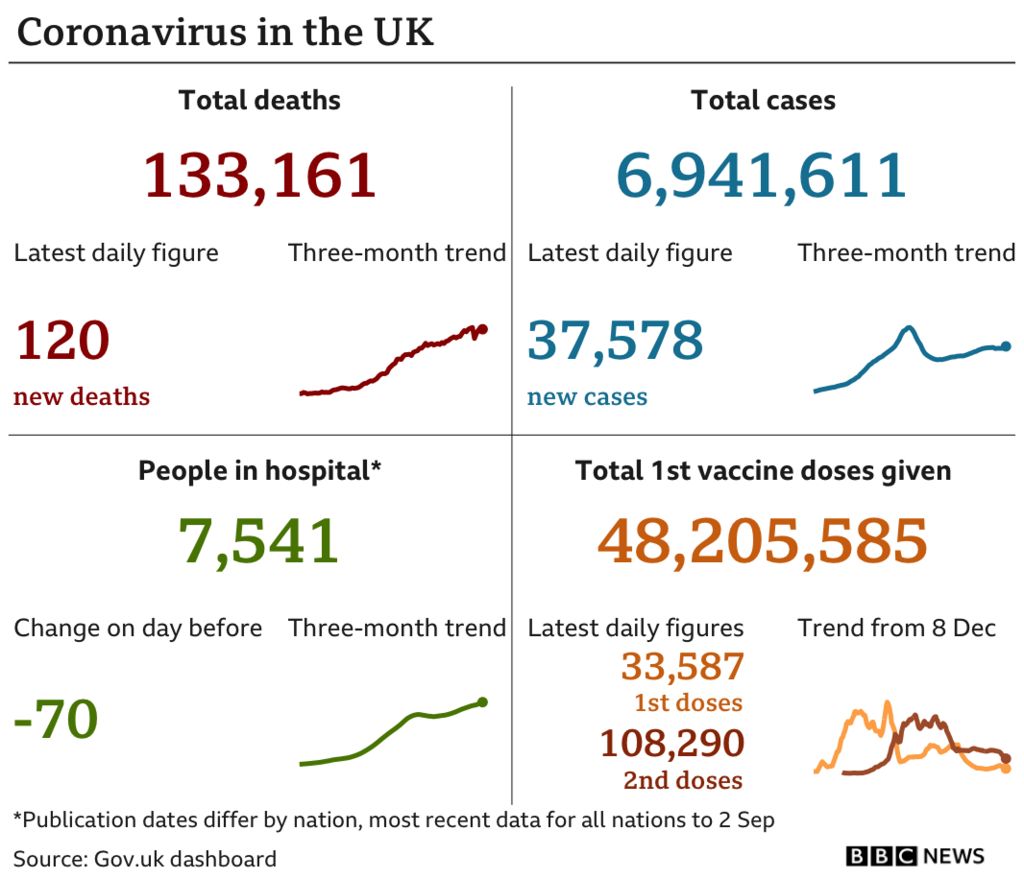Plans to introduce vaccines passports in nightclubs and other indoor venues in England will go ahead this month, the vaccines minister has confirmed.
Nadhim Zahawi said it was the right time to introduce the certificates, as all over-18s will have been offered two jabs by the end of September.
The scheme requiring people to show Covid vaccination proof has been criticised by venues and some MPs.
But Mr Zahawi said it would ensure the economy could remain open.
“The best way we can keep those industries open in my view, in our view, is to work with the industry,” he told the BBC’s Andrew Marr Show.
The vaccines minister said: “One thing that we have learnt is that in large gatherings of people, especially indoors, the virus tends to spike and spread.”
He referred to the “exemplary way” Premier League football clubs have been asking fans to show proof they have been vaccinated, allowing stadiums to reopen to capacity crowds last month.
Mr Zahawi said: “When the evidence that you are presented is so clear cut and that we want to make sure the industry doesn’t have to go through [an]open-shut, open-shut sort of strategy, then the right thing to do is to introduce that by the end of September when all over 18 year-olds have had their two jabs.”
It comes after Scotland this week announced that vaccine passports will be required for entry to nightclubs and many large events in Scotland from later this month.
Meanwhile, on the issue of offering Covid jabs to all 12 to 15-year-olds, Mr Zahawi said if a recommendation from the UK’s chief medical officers was to vaccinate, then it “absolutely” was the right thing to do.
But he said he did not want to “pre-determine” their decision.
The Joint Committee on Vaccination and Immunisation (JCVI) decided not to recommend the rollout be extended, saying the benefits to younger children on health grounds alone were “marginal”. They have now asked the chief medical officers to consider the wider implications – including transmission rates and disruption to schools.
Prof Peter Openshaw, a member of the Nervtag group that advises the government on virus threats, said he was “a little surprised” at the JCVI’s decision.
“We do know the virus is circulating very widely amongst this age group, and that, if we’re going to be able to get the rates down and also prevent further surges of infection perhaps later in the winter, then this is the group that needs to become immune,” he told BBC Breakfast.
On Saturday, 37,578 cases of coronavirus were reported in the UK and 120 deaths within 28 days of a positive test.





